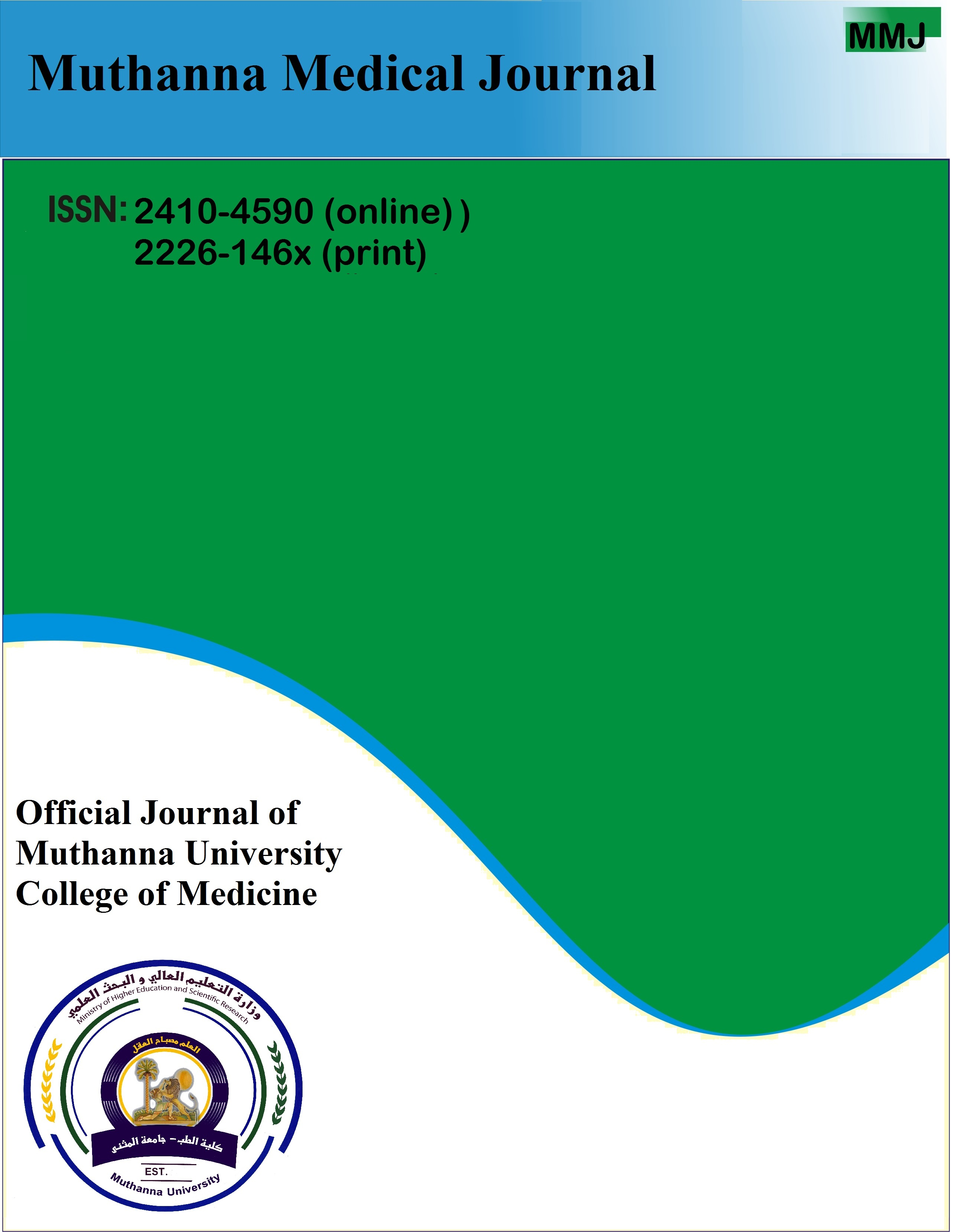Muthanna Medical Journal

Volume 9, Issue 1, 2022 Page 57-67
http://dx.doi.org/10.52113/1/1/2022-57-67
Nasser Ghaly Yousif ¹*, Ana Oton ², Kari Chetterje ², Mahesh Gupta ², Manu Shankar ³
Correspondence author: yousif_ghaly@mu.edu.iq, yousif_ghaly@yahoo.com
¹ Department of Medicine, Al Muthanna Medical College, Al Muthanna University.
² Department of Medicine, Colorado University, USA.
² Lakshmi Mittal and Family South Asia Institute, Harvard University, USA.
² Lakshmi Mittal and Family South Asia Institute, Harvard University, USA.
³ Indian Institute of Public Health, India.
Received 12 April 2022, Accepted 03 June 2022, Available online 30 June 2022.
Copyright © 2022 NG . This is article distributed under the terms of the Creative Commons Attribution License http://creativecommons.org/licenses/by/4.0), which permits unrestricted use, distribution, and reproduction in any medium, provided the original work is properly cited.
Abstract
Through December 2019, novel coronavirus (SARS-CoV-2) pneumonia (COVID-19) was reported in Wuhan and has since rapidly spread throughout China. Hodgkin lymphoma represents a heterogeneous hematological malignancy, which is characterized by immunosuppression. There are no clearly defined risk factors for the development of this disease and the cause of remains unknown. Factors shown to be associated with Hodgkin include familial factors, viral exposures, and immune suppression. An electronic search was performed to identify all studies reporting on the management of Hodgkin lymphoma patients during the COVID-19 pandemic. The PubMed/MEDLINE database was searched on October 30th, 2019, to January 30th. 2022. The search strategy was SARS-CoV-2 or COVID-19 and Hodgkin lymphoma. We aimed to clarify the clinical outcome of COVID-19 in patients with Hodgkin lymphoma through systematic review and meta-analysis.
Keywords: SARS-CoV-2, Hodgkin lymphoma, Complete remission